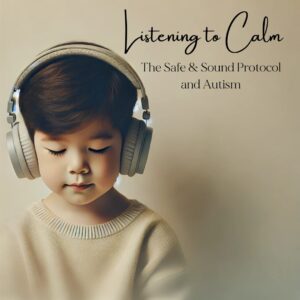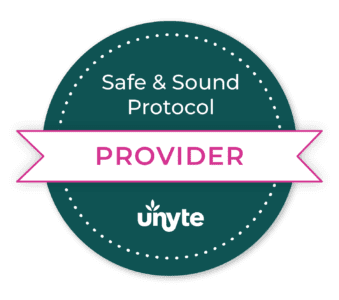Sometimes, communicating with your ex feels like defusing a bomb—you’re carefully choosing every word, trying not to set anything off. One wrong move, a phone call at the wrong time, and things detonate, leaving everyone stressed out and frustrated. It’s exhausting, and the stakes are high because you know it’s not just about you—it’s about keeping things peaceful for your kids. You’re juggling your own emotions, managing logistics, and trying to keep the peace, all while your kids are watching. It’s not easy, but here’s the good news: learning how to communicate effectively with your ex is one of the best things you can do for your children.
Research tells us that children adjust much better when their parents are able to cooperate, even if the marriage didn’t work out. No one’s saying you have to be best friends, but keeping things civil makes a world of difference for your child’s emotional health. So, how do you make this work when the last thing you want to do is pick up the phone or open that text?
Let’s break down some practical tips to help you communicate more smoothly with your ex, minimize conflict, and—most importantly—protect your child’s sense of security.
Why Civil Communication Is So Important
Your child is learning from how you interact with their other parent. Whether it’s through body language, a text exchange, or a quick conversation at drop-off, the way you communicate with your ex sends powerful messages. It teaches your child how to handle conflict, navigate difficult relationships, and manage their emotions. And here’s the thing: your child’s emotional health depends a lot on the tone and frequency of conflict they witness between you and your ex.
The Impact of Parental Conflict
- Increased Anxiety and Behavioral Issues: Research shows that children exposed to high levels of parental conflict are at greater risk for anxiety, depression, and behavioral issues. In fact, a study published in Child Development found that children whose parents had frequent, hostile exchanges were more likely to experience emotional and behavioral problems.
- Long-Term Effects on Emotional Regulation: Kids who grow up witnessing ongoing conflict between parents often struggle with emotional regulation themselves. According to a report from the American Psychological Association, children from high-conflict households are more likely to have difficulty managing their own emotions and may carry those patterns into adulthood.
- Cooperation Benefits Children’s Academic and Social Success: A study from the University of Illinois found that children whose divorced parents were able to cooperate and maintain civil communication were more likely to do better academically, socially, and emotionally. These kids are more likely to feel secure and less likely to act out.
Practical Communication Tools to Make It Easier
Sometimes, keeping things civil means minimizing the need for direct contact. That’s totally understandable, especially if emotions are still raw. Thankfully, there are plenty of tools designed to help you stay coordinated without the need for constant back-and-forth conversations. These tools can keep communication clear, reduce misunderstandings, and most importantly, keep your kids feeling safe and secure.
1. Shared Calendars
Having a shared calendar for important events—like doctor’s appointments, school activities, or vacations—can help both parents stay on the same page without needing to check in constantly.
- Google Calendar: Free and easy to use, you can set up a shared family calendar so everyone has access to the same information.
- Cozi: A family organizer app that includes a shared calendar, to-do lists, and meal planning. It’s perfect for keeping all household members informed about what’s going on.
2. Co-Parenting Apps
If face-to-face or even texting conversations are too difficult, co-parenting apps are a great way to manage communication, expenses, and schedules. They provide a structured platform that makes it easier to stay on task without letting emotions get in the way.
- Our Family Wizard: Often required by courts, this app allows you to manage schedules, share important information, and track expenses. The messaging system is particularly useful for keeping conversations clear and focused on the kids. Plus, it provides a written record, which can help reduce misunderstandings.
- Talking Parents: This app is also commonly court-mandated and helps co-parents communicate clearly and respectfully. It includes features like a secure messaging platform, a shared calendar, and document storage.
- 2Houses: Designed specifically for separated or divorced parents, this app allows you to manage schedules, expenses, and important information about your kids in one place.
3. Texting Apps with Boundaries
If texting works for you, but things tend to get heated, you can set boundaries around when and how to communicate.
- Email for Longer Discussions: Consider switching to email for any discussions that require more thought or detail. Emails give both of you time to pause, reflect, and avoid emotional knee-jerk reactions.
- Pre-Set Times for Communication: Establishing a specific window during the day or week when you discuss logistics (instead of ad-hoc texts) can reduce the feeling of being constantly “on call.” It can also give you time to cool down before responding.
4. Parenting Plans
Having a written parenting plan helps reduce ambiguity and sets clear expectations. A well-crafted plan should include details about custody schedules, holidays, vacations, and communication rules. Having it all in writing helps avoid the need for constant renegotiation or arguments over details.
- Digital Document Sharing: Use a cloud-based tool like Google Drive or Dropbox to store and share important documents like your parenting plan, medical records, or school forms. This keeps everything in one place and accessible to both parents.
5. Task and Expense Trackers
Managing shared expenses—like school fees, extracurricular activities, or medical bills—can be a major source of conflict. Apps that track these expenses can reduce misunderstandings and keep financial matters clear.
- Splitwise: This app helps track shared expenses, making it easier to split costs like school supplies or sports fees. It keeps a running tally and allows you to settle up when needed.
- WeParent: Along with scheduling and communication features, this app has an expense tracker to help both parents stay on top of shared costs.
Postscript: What to Do When You’re Angry and Want to Make Your Ex Pay
Let’s be real—sometimes the anger you feel toward your ex is overwhelming. Maybe they hurt you deeply, or maybe the frustrations of co-parenting have built up over time. It’s only natural to feel like you want them to feel a bit of that pain too. But here’s the hard truth: there is absolutely no way to punish your ex without also punishing your kids.
It’s tempting to lash out in a text or use your kids as leverage, but all that does is keep the wounds open—and it never leads to long-term relief. In fact, it tends to backfire emotionally, leaving you feeling worse, not better.
Why It Doesn’t Work
- Your Kids Are Watching: They pick up on everything, from your words to your body language. If they see or hear you lashing out, it adds to their stress. They may start to feel responsible for the tension, which can impact their emotional well-being.
- It Backfires on You: Trying to “get back” at your ex might feel satisfying in the moment, but it often leads to more regret and stress later. You might replay the conflict in your mind, keeping you stuck in a cycle of anger and frustration.
- It Hurts Your Child’s Sense of Security: When kids witness conflict, or worse, feel like they’re in the middle, it can undermine their sense of stability. Kids need to feel safe and loved by both parents, no matter what’s happening between the two of you.
Tips for Managing Anger When It Hits Hard
- Pause Before Responding: Give yourself a moment to breathe before replying to a message or comment that sets you off. This space can help you communicate more clearly and avoid saying something you’ll regret.
- Find a Healthy Outlet: Anger needs an outlet, but your ex and your kids aren’t the right target. Call a friend, journal, or get outside for some fresh air to release the tension.
- Remember the Big Picture: The goal isn’t to “win” against your ex; it’s to raise emotionally healthy children. Keeping that in mind can help you focus on what really matters, even when you’re boiling with frustration.
Anger is natural, but acting on it rarely brings the relief we hope for. Instead, it keeps us stuck, and worse, it pulls the kids into a conflict they never signed up for. Keep focusing on creating a healthy, peaceful environment for them—your future self (and your kids) will thank you.
By keeping civil communication at the forefront—and using tools to reduce direct conflict—you’re not only protecting your own peace of mind but also giving your kids the emotional stability they need to thrive. It’s not easy, but with the right support and structure, you’re creating a healthier, happier environment for your children. And that’s something to be proud of.
-

Katie Brou, HS-BCP is passionate about helping families thrive. A wife and mother herself, she specializes in guiding young adults, couples, and parents through the complexities of family life, fostering growth and healthy relationships along the way.
View all posts
- Choosing Wisely: Co-Parenting vs. Parallel Parenting After Divorce
- 7 Non-Negotiable Rules to Safeguard Your Child’s Well-Being After Divorce
- Communicating with Your Ex: Keeping It Civil for the Kids
- Helping Kids Navigate Their Emotions After Divorce
- The New Normal After Divorce: 10 Tips for Successful Coparenting
 (281) 305-9387
(281) 305-9387









